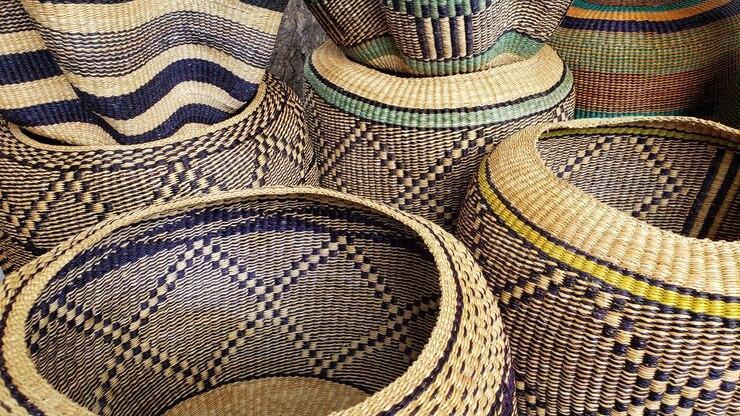Africa-Press – Botswana. Botswana’s traditional basket weaving is a centuries-old craft that reflects the country’s cultural heritage and artisanal skill. These handmade baskets, often crafted from natural materials like palm leaves, ilala grass, and local reeds, are prized for their intricate designs, durability, and aesthetic appeal. While historically produced for local use, there is growing potential to transform this craft into a globally recognized brand, creating economic opportunities for artisans and preserving cultural traditions.
The first step in transforming basket weaving into a global brand is understanding the market. International consumers increasingly value handcrafted products with cultural significance. Eco-friendly and sustainable products, particularly those made from natural materials, are in high demand. Positioning Botswana’s baskets as authentic, sustainable, and high-quality can attract buyers in North America, Europe, and Asia.
Design innovation is key. While traditional patterns are important for cultural authenticity, integrating contemporary designs can make products more appealing to international markets. Collaborating with designers can help adapt traditional weaving techniques to modern tastes without compromising craftsmanship. Product diversification, including decorative baskets, functional storage items, handbags, and home décor, can expand market reach.
Branding and storytelling are essential. Buyers are not only purchasing a basket but also the story behind it. Highlighting the artisans, their communities, and the heritage of Botswana’s weaving culture can create an emotional connection with consumers. Packaging should reflect the brand’s identity and convey quality and authenticity. Including information about sustainable sourcing and artisan support enhances brand appeal.
Digital marketing and e-commerce are critical channels for reaching global customers. Creating an online store or partnering with established marketplaces allows Botswana’s baskets to be sold internationally. Social media platforms, especially Instagram and Pinterest, are effective for visually showcasing the craftsmanship. Influencer partnerships and content marketing that focus on cultural heritage and sustainability can boost visibility and engagement.
Capacity building among artisans is vital. Training programs in quality control, contemporary design, production scaling, and business management ensure that artisans can meet international standards. Establishing cooperatives or artisan groups can streamline production, maintain consistency, and provide collective marketing opportunities.
Logistics and supply chain management must be addressed. Exporting handmade products requires careful planning for packaging, shipping, and customs clearance. Using sustainable packaging materials reinforces the brand’s eco-friendly positioning. Collaborating with export agencies or consultants familiar with international trade regulations can simplify the process and reduce costs.
Partnerships with tourism and retail sectors within Botswana can also strengthen the brand. Selling baskets in hotels, cultural centers, and airports builds local visibility while providing a testing ground for international expansion. Participation in trade fairs and exhibitions allows direct interaction with global buyers and provides valuable market insights.
Financial support and policy incentives play an important role. Government programs, grants, or microfinance initiatives can provide artisans with the capital needed for materials, training, and marketing. Policies that support cultural industries and small-scale enterprises can accelerate growth and help establish Botswana as a hub for high-quality handicrafts.
Transforming Botswana’s traditional basket weaving into a global brand requires a combination of market understanding, design innovation, branding, digital marketing, artisan capacity building, and efficient logistics. By preserving cultural authenticity while adapting to global consumer preferences, Botswana can elevate its basket weaving industry, create sustainable livelihoods, and position itself as a leader in artisanal crafts on the international stage.
For More News And Analysis About Botswana Follow Africa-Press






